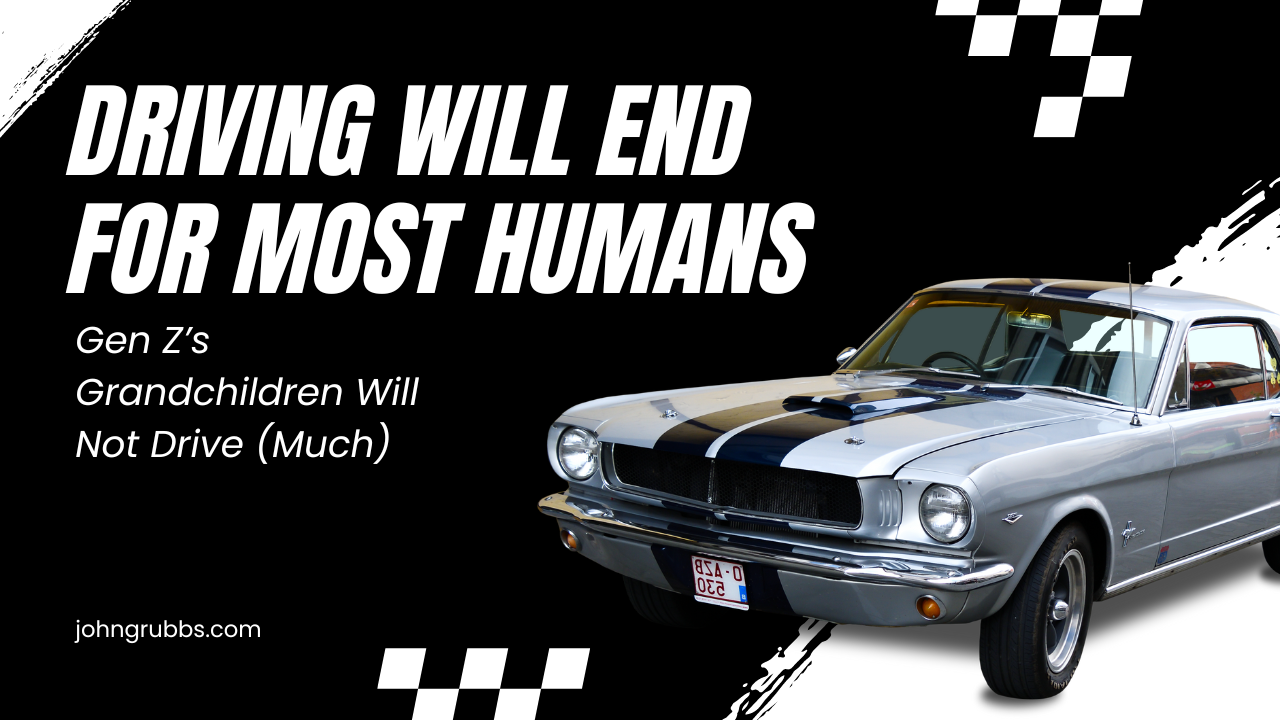
As we look toward the future, one of the most profound changes on the horizon is the transformation of personal transportation. For Generation Z, born between the late 1990s and early 2010s, driving symbolizes independence and freedom. However, their grandchildren are poised to experience a very different reality. The rapid advancement and proliferation of autonomous vehicles, controlled by sophisticated artificial intelligence (AI), are set to revolutionize transportation, making driving an optional skill rather than a necessity.
The Rise of Autonomous Vehicles
Autonomous vehicles, or self-driving cars, have evolved from science fiction to tangible reality within a few short decades. Companies like Tesla, Waymo, and Uber have been at the forefront of this technological revolution, investing billions into developing and testing autonomous driving systems. These systems leverage AI, machine learning, and many sensors to navigate roads, avoid obstacles, and ensure passenger safety without human intervention.
The potential benefits of autonomous vehicles are immense. They promise to reduce traffic accidents, many of which are caused by human error, and to provide mobility solutions for those who cannot drive, such as those with physical limitations. Additionally, they could optimize traffic flow and reduce congestion, leading to more efficient and environmentally friendly transportation networks.
Changing Skill Sets
As autonomous vehicles become more prevalent, the necessity of learning to drive will diminish. For Generation Z, learning to drive was almost a universal experience, a critical life skill taught in high school or by parents. However, for their grandchildren, the landscape will be very different. Driving will become a specialized skill, learned by those with a particular interest in automobiles or required by specific professions but not by most of the population.
This shift is analogous to the changes seen in other technological domains. For example, with the advent of digital cameras and smartphones, film photography and darkroom development skills have become niche hobbies rather than widespread practices. Similarly, the rise of personal computers and smartphones has reduced the need for many people to learn advanced computing skills or coding, as user-friendly interfaces and applications handle most tasks.
The Impact on Society
The widespread adoption of autonomous vehicles will have far-reaching implications for society. Firstly, it will change the way cities are designed and operated. Parking lots and garages may become less necessary, freeing up valuable urban space for other uses, such as parks or residential developments. We will reimagine public transportation, integrating autonomous buses and shuttles that operate on demand, providing more flexible and efficient service than current fixed-route systems.
Moreover, the time spent commuting will transform. Without focusing on driving, passengers can use their travel time for work, entertainment, or relaxation. This change will enhance productivity and improve work-life balance for many individuals.
The job market will also see significant shifts. While there will be a decline in demand for traditional driving jobs, such as truck and taxi drivers, new opportunities will emerge in vehicle maintenance, AI programming, and transportation management. Educational institutions must adapt, offering training programs that prepare students for these new career paths.
Safety and Ethical Considerations
While the benefits of autonomous vehicles are clear, their widespread adoption also raises essential safety and ethical considerations. Ensuring the reliability and security of autonomous driving systems is paramount. These systems must handle various driving conditions and respond appropriately to unexpected events. Rigorous testing and regulatory oversight will be essential to build public trust and ensure these vehicles are safe.
Ethical considerations also come into play. Autonomous vehicles will need to make complex real-time decisions, such as prioritizing the safety of passengers versus pedestrians in potential accident scenarios. Establishing guidelines and frameworks for these decisions will be a critical challenge for developers, ethicists, and policymakers.
Cultural Shifts
Transitioning to a world where driving is optional will also bring about cultural shifts. For many, driving has been more than just a means of transportation; it has been an integral part of their identity and lifestyle. Car culture will evolve, which includes everything from the joy of a road trip to the pride of owning a personal vehicle. Enthusiasts will likely continue to value and collect cars, and driving may become a hobby or sport rather than a daily necessity.
Additionally, the perception of car ownership itself may change. As autonomous ride-sharing services become more prevalent and affordable, the economic and environmental benefits of shared vehicle use may outweigh the desire for personal car ownership. This change could reduce the number of vehicles on the road, further alleviating traffic congestion and reducing emissions.
Looking Ahead
The grandchildren of Generation Z will grow up in a world where the landscape of personal transportation is altered by autonomous vehicles. Once a crucial skill, driving will become optional—a choice rather than a requirement. This shift will bring numerous benefits, including increased safety, efficiency, and accessibility, but it will also necessitate careful consideration of ethical and societal impacts.
As we stand on the cusp of this transformation, embracing the possibilities and remaining vigilant about the challenges is essential. The future of driving is not just about technology; it is about reimagining how we live and move within our cities and communities. By thoughtfully integrating autonomous vehicles into our society, we can create a future where transportation is safer, more efficient, and more inclusive for everyone. What are your thoughts?